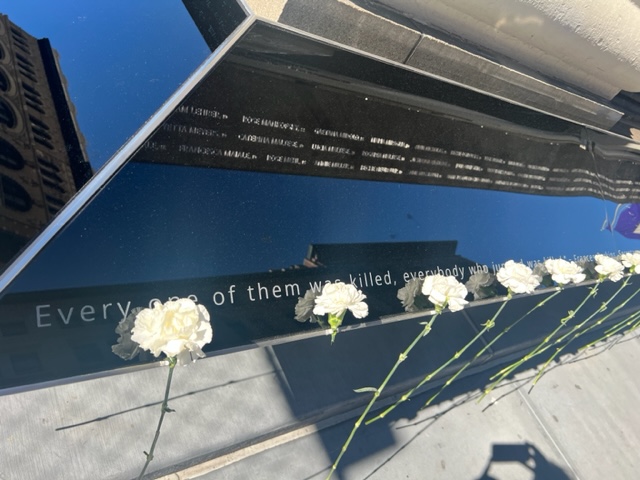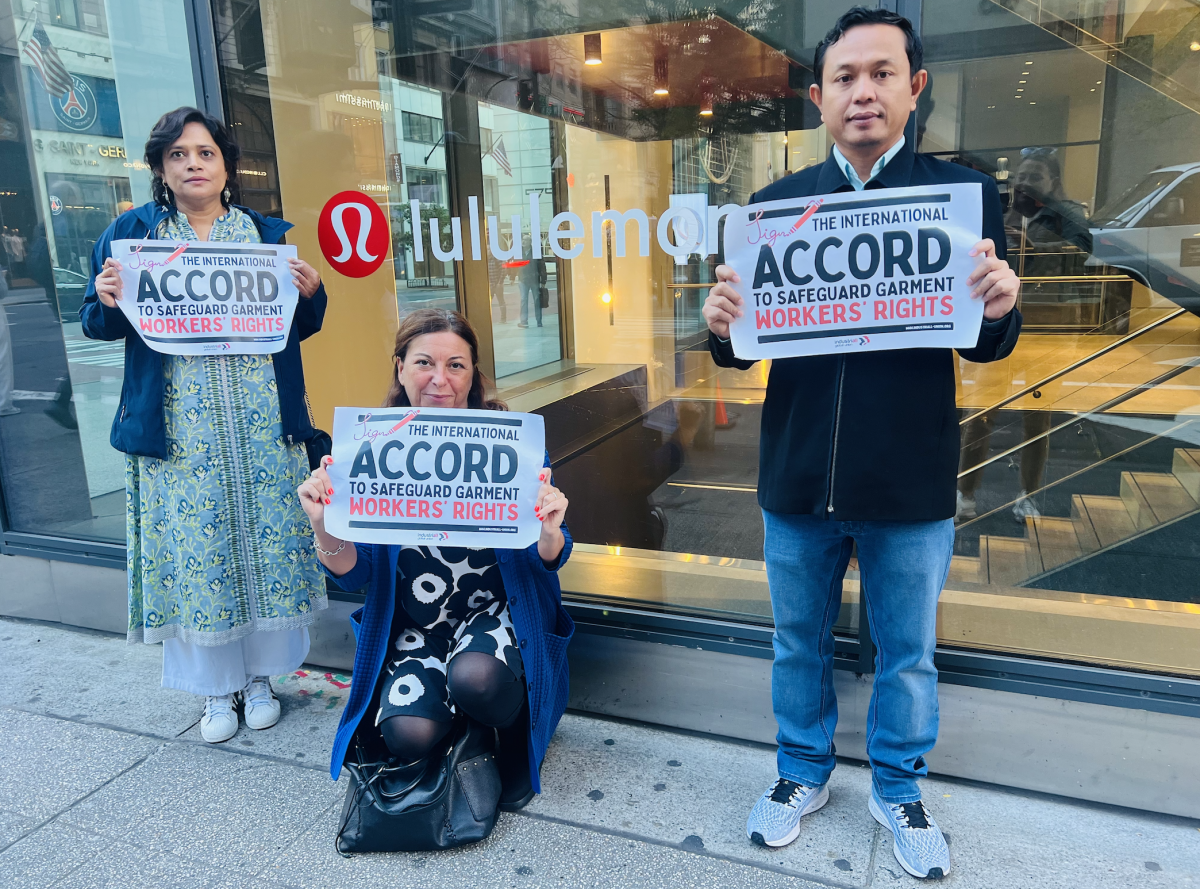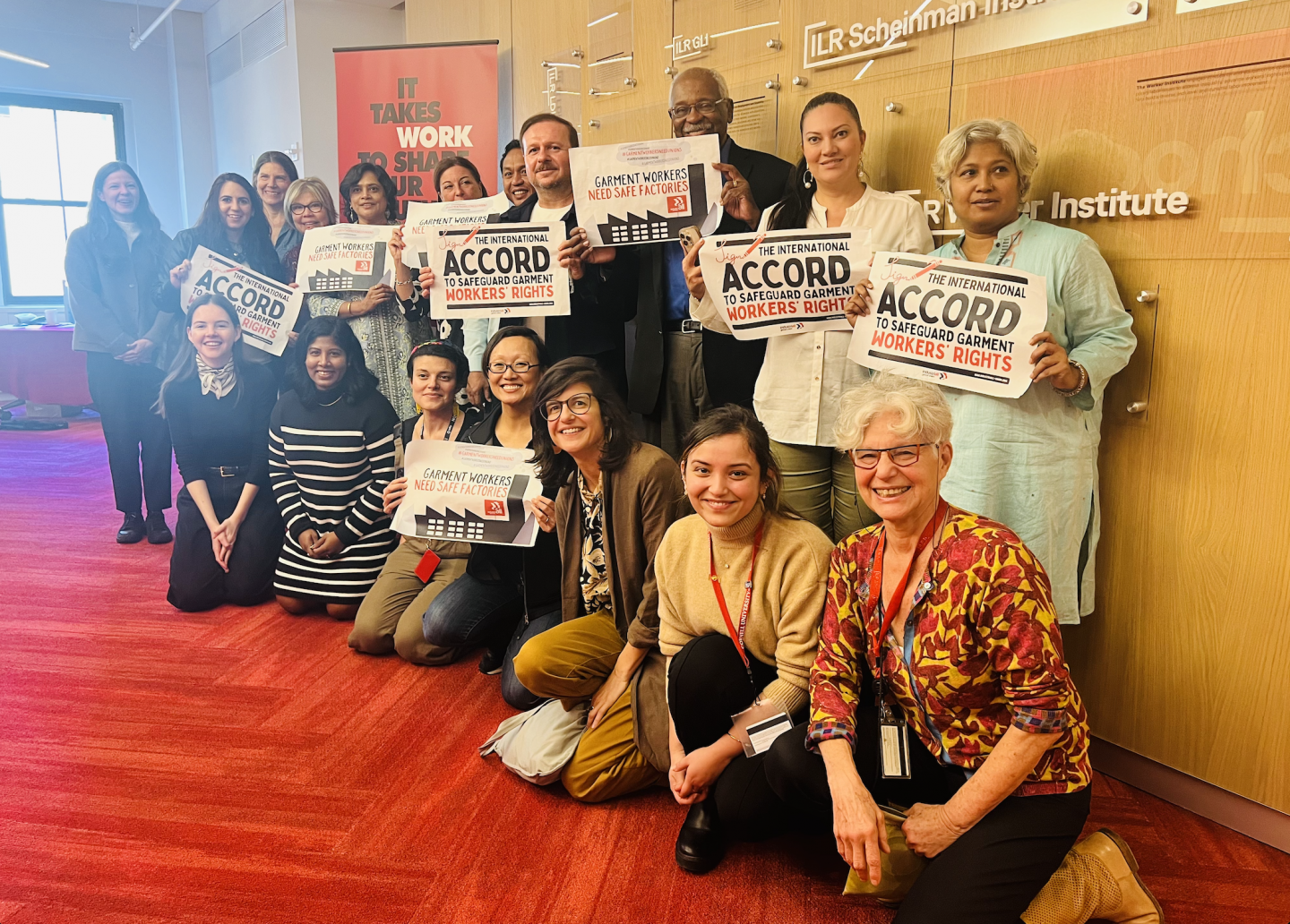19 October, 2023IndustriALL is working with affiliates and allies to promote supply chain industrial relations centred on workers’ rights and legally binding agreements with global brands and retailers. This contrasts with the prevailing voluntary, private auditing model which has not been protective of workers’ rights and has brought risk to companies and investors alike.
Successful and effective examples of the newer model of global company-trade union agreements include the International Accord, which has been expanded to Pakistan, and the ACT MoU on Living Wages.
“We’ve been raising awareness of global company-trade union agreements and why companies should move toward this model. We recently commissioned an investor brief that outlines this work,”
says IndustriALL textile and garment director Christina Hajagos-Clausen.
This week, a delegation of trade union leaders from IndustriALL textile and garment affiliates in Bangladesh, Cambodia and Turkey met with the US International Bureau for Labor and Department for Labor, American Apparel & Footwear Association, Fair Labor Association and the Special Advisor on International Labor at the National Security Council to discuss the importance of legally binding agreements for the industry.
The meetings in Washington DC were part of an advocacy tour promoting IndustriALL’s work around supply chain industrial relations and global company-trade union agreements, and followed on meetings with US brands, investors and academia in New York.
In New York, the delegation attended a public memorial for the 146 young women and girls who perished in the Triangle Shirtwaste Factory in 1911. Workers United secretary-treasurer Edgar Romney welcomed the crowd, which included families and relatives of the victims of the fire.

"The fire raged on the 7th, 8th and 9th floor. The women and girls - the youngest victim was 14 - could not get out as the doors were locked. The employer had locked the doors to stop union organizers coming in. We will continue to organize so that tragedies like this won't happen again,"
Romney said.
Acting US Secretary of Labor, Julie Su, reminded the audience that Frances Perkins, who witnessed workers jumping to their deaths to escape the fire, turned the horror of what she saw into action, becoming the first female labor secretary and a driving force behind health and safety systems.
"Corporate accountability is key, brands must take responsibility for where the clothes are made. Let's not wait for the next tragedy until change is done."
Unfortunately, unsafe and dangerous working conditions, violence and harassment in the workplace, employers blocking union organizing still exist, 112 years after the fire. For garment brands, signing the legally binding International Accord shows a clear commitment to workers' rights and taking responsibility for its supply chain. Out of the 200 brands that have signed the Accord, only a handful are from the US.
Bangladeshi trade union leader Nazma Akter agreed:
“The industry has changed a lot, but it is still dangerous. Unfair labour practices are still rampant in Bangladesh; we need more US brands to sign the Accord.”

Athit Kong from Cambodia stressed the need for brands who are at the top of the supply chain to support the work on a sectorial living wage in the country.
“With ACT, there is an MOU with 20 global brands to support a CBA which would not only mean promoting a living wage but would also mean more protection for workers and unions.”
Many of the ACT brands source from Turkey, where the respect for freedom of association is often lacking. Union leader Rafi Ay said:
"The main challanges are the high membership thresholds and the slow authorization process for union recognition which are necessary before either collective bargaining or strike action can take place in Turkey. This leaves an important role for global brands to play."









